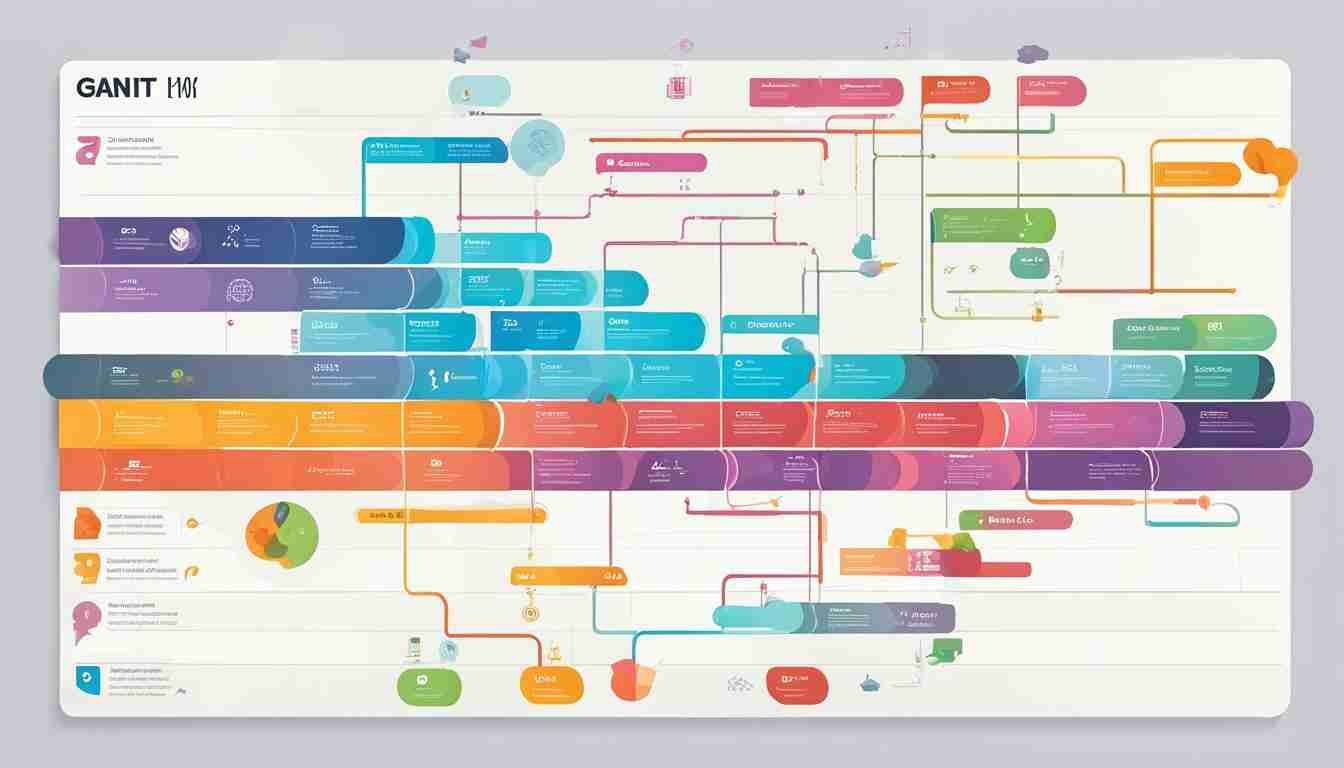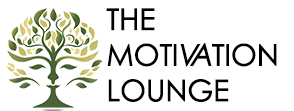Efficient organization and planning skills are essential for achieving long-term success in any career. Having a well-organized approach to tasks and activities can significantly improve individual productivity, manage time better, enhance efficiency, and ensure work quality. In this section, we’ll delve into how honing these skills can advance your career and provide tips on how to develop them.
Key Takeaways
- Organization and planning skills are crucial in career growth and development.
- Effective organization techniques can improve productivity and efficiency.
- Developing planning and organizational skills can lead to better time management and quality of work.
Enhancing Time Management for Increased Productivity
Time is a precious resource that needs to be managed effectively to achieve optimal productivity. While we cannot add more hours to the day, we can learn effective time management techniques to make the most of the time we have. By mastering time management, we can reduce stress, increase efficiency, and achieve our goals with less effort.
Here are some tips on how to enhance your time management skills:
- Set clear goals: Identify what you want to achieve and break it down into smaller, achievable tasks. This will help you prioritize tasks and manage your time more efficiently.
- Use a task planner or calendar: Writing down tasks and deadlines will help you stay organized and focused. You can use digital or paper planners, depending on your preference.
- Eliminate distractions: Emails, social media, and other digital distractions can eat up a significant portion of our time. Try to limit your time on these activities and focus on the most important tasks at hand.
- Delegate tasks: If you have a team, delegate tasks that can be done by others. This will free up your time to focus on more important tasks.
- Take breaks: Taking breaks can actually increase productivity by providing a mental break and reducing stress. Try to take short breaks every hour or two to recharge and refocus.
- Utilize time management tools: There are many time management apps and tools available that can help you manage your time more effectively, such as Trello, Asana, and RescueTime.
By implementing these time management strategies, you can increase your productivity and achieve your goals with less effort. Remember that effective time management takes practice and consistency, so keep at it and you will see the results.

Mastering Task Prioritization for Optimal Results
In today’s fast-paced professional environment, the ability to prioritize tasks effectively is vital to achieving optimal productivity. Task prioritization involves taking a strategic approach to organizing and managing tasks according to their importance, urgency, and deadlines. Developing this skill allows you to work smarter by focusing your energy on high-value tasks that deliver the best results.
Here are some techniques to help you master task prioritization and boost your productivity:
1. Identify and categorize tasks
Make a list of all the tasks you need to complete and categorize them based on their level of importance, urgency, and deadline. This will help you understand which tasks require immediate attention and which ones can be postponed.
2. Consider the consequences
Think about the potential consequences of not completing each task on time and how it will impact your work and the team’s goals. This will help you prioritize deadlines and identify the tasks that require your immediate attention.
3. Determine your high-value tasks
Rank the tasks based on their level of priority and identify the ones that contribute the most to your team’s objectives. Focus your energy on these high-value tasks to ensure that they are completed on time and to a high standard.
4. Learn to delegate
Delegate low-priority tasks to other team members to free up time for more critical assignments. This will allow you to prioritize your tasks more effectively and focus your energy on delivering high-quality work.
By mastering task prioritization, you can significantly improve your productivity while ensuring that the most important tasks are completed on time and to a high standard. These skills are essential for career growth and can help you become a more valuable asset to your team.

Developing Effective Project Management Skills
Project management is a crucial aspect of organization and planning skills. It involves the process of planning, organizing, and executing a project from start to finish. The ability to manage a project effectively can lead to better results and increased productivity.
One essential technique for project management is creating a timeline. A timeline helps to organize the tasks involved in a project and set specific deadlines for each. This helps to ensure that the project stays on track and is completed on time. It is also important to allocate resources effectively to each task, ensuring that there are no bottlenecks or delays in the project.
| Project Management Tips: | |
|---|---|
| 1. Define project goals and objectives clearly. | |
| 2. Create a project timeline with specific deadlines. | |
| 3. Allocate resources effectively. | |
| 4. Track progress regularly and adjust plans accordingly. |
Tracking progress is another important aspect of project management. By monitoring the progress of a project, you can identify potential issues or roadblocks early and make adjustments as needed. This helps to ensure that the project stays on track and that the end result meets or exceeds expectations.
Overall, developing effective project management skills is an essential part of organization and planning skills. By creating timelines, allocating resources, and tracking progress, you can ensure that your projects are completed on time and to a high standard.

Problem-Solving and Decision-Making Strategies
Effective problem-solving and decision-making are essential skills in professional settings. They require a combination of critical thinking, creativity, and analysis to identify and resolve complex issues. Organization and planning skills serve as a foundation for successful problem-solving and decision-making.
When faced with a problem, it’s important to approach it systematically. One common framework for problem-solving is the “IDEAL” model:
| IDEAL Model | Description |
|---|---|
| Identify | Clearly define the problem |
| Define | Gather information and analyze the problem |
| Explore | Generate possible solutions |
| Action | Select the best solution and develop an action plan |
| Learn | Evaluate the outcome and learn from the experience |
Another essential skill for decision-making is being comfortable with taking calculated risks. This means weighing the potential benefits and downsides of a decision and determining the level of risk that is acceptable.
It’s also important to consider different perspectives and seek input from others when making decisions. This can help identify potential blind spots and lead to more informed choices.
In summary, problem-solving and decision-making are critical skills in any profession. By developing organization and planning skills, individuals can approach problems and decisions systematically, take calculated risks, and consider different perspectives to make well-informed choices.

The Critical Role of Attention to Detail
Attention to detail is a crucial component of organization and planning skills in the workplace. It involves being meticulous and thorough in all tasks, no matter how small or insignificant they may seem.
Having a keen eye for detail can enhance efficiency and accuracy, leading to optimal results and higher quality work. It also demonstrates a level of professionalism and commitment to excellence, which can strengthen one’s reputation and credibility.
One effective way to cultivate attention to detail is to create checklists or templates for recurring tasks, ensuring that nothing is overlooked or forgotten. This helps to streamline the process and minimize errors or omissions.
Another approach is to regularly review and revise work, seeking out any potential areas for improvement or errors that need to be corrected. This not only ensures that work is of the highest quality but also fosters a culture of continuous improvement and growth.
Overall, attention to detail is essential for success in any career, as it contributes to overall efficiency, accuracy, and quality of work. By prioritizing it as a crucial aspect of organization and planning skills, individuals can set themselves apart and achieve their professional goals.

The Art of Multitasking and Time Allocation
Many professionals are familiar with the concept of multitasking, but not all understand how to effectively balance multiple tasks while also managing time efficiently. Multitasking requires a high level of organization and planning skills, as well as the ability to prioritize tasks effectively.
To start, identify which tasks are most critical and need immediate attention. Utilize tools such as calendars or productivity apps to create a schedule and allocate time for each task. This will help ensure that deadlines are met and that important tasks are not forgotten.
It’s also important to recognize your personal limitations and work style. Some individuals may thrive under pressure and prefer to tackle multiple tasks at once, while others may work better when focusing on one task at a time. Experiment with different approaches to find what works best for you.
While multitasking can be beneficial, it’s important to avoid overcommitment and burning out. Prioritize self-care and allow for breaks throughout the day to recharge and avoid excessive stress.
Implementing effective multitasking and time allocation strategies can help professionals increase productivity and achieve their goals. By balancing multiple tasks and managing time efficiently, individuals can make the most of their workday and achieve success.

Conclusion
Organization and planning skills are essential for professional growth and development. By better managing time, prioritizing tasks, and mastering project management, individuals can enhance productivity and achieve optimal results in their work.
Effective problem-solving and decision-making strategies, along with attention to detail and multitasking abilities, are also crucial components of organizational and planning skills. By implementing these techniques and frameworks in their daily work routine, individuals can streamline workflows, improve accuracy, and achieve success.
It is important to note that these skills are not innate; they can be developed and honed over time with practice and dedication.
Therefore, it is important for individuals to take the time to invest in themselves by improving their organizational and planning skills. Whether it’s through attending workshops, reading books, or seeking guidance from mentors, the benefits of developing these skills can have a significant impact on one’s career.
Start Practicing Now
Begin implementing these strategies in your work routine today and watch as your productivity and efficiency soar. With effort and commitment, you can boost your career and achieve your goals.
FAQ
Q: What are organization and planning skills?
A: Organization and planning skills refer to the ability to effectively manage tasks, time, and resources in order to achieve goals and objectives.
Q: Why are organization and planning skills important for career growth?
A: Developing organization and planning skills can lead to increased productivity, efficiency, and success in the workplace. These skills ensure that tasks are completed on time, resources are allocated effectively, and goals are achieved.
Q: How can organization and planning skills positively impact my career?
A: By honing organization and planning skills, professionals can enhance their ability to meet deadlines, manage projects effectively, make informed decisions, and maintain a high level of productivity. These skills are highly valued by employers and can contribute to career advancement.
Q: What are some effective time management techniques?
A: Some effective time management techniques include setting goals and priorities, creating schedules or to-do lists, eliminating distractions, delegating tasks when possible, and utilizing productivity tools or methods such as the Pomodoro Technique.
Q: How does task prioritization contribute to productivity?
A: Task prioritization helps individuals focus on the most important and urgent tasks first, ensuring that their time and energy are allocated efficiently. By prioritizing tasks effectively, professionals can avoid getting overwhelmed, meet deadlines, and achieve optimal results.
Q: What are key elements of project management?
A: Key elements of project management include defining project objectives, creating a project plan, setting timelines and milestones, allocating resources, coordinating team members, monitoring progress, and evaluating project outcomes.
Q: Why is attention to detail important in organization and planning skills?
A: Attention to detail is crucial in organization and planning skills because it ensures accuracy, minimizes errors, and maintains quality in work. Being meticulous allows for thoroughness and precision, which are important for successful task completion.
Q: How can multitasking be effectively managed?
A: To effectively manage multitasking, individuals should prioritize tasks, set realistic expectations, break tasks into smaller components, utilize time management techniques, delegate when possible, and maintain good communication and organization.





